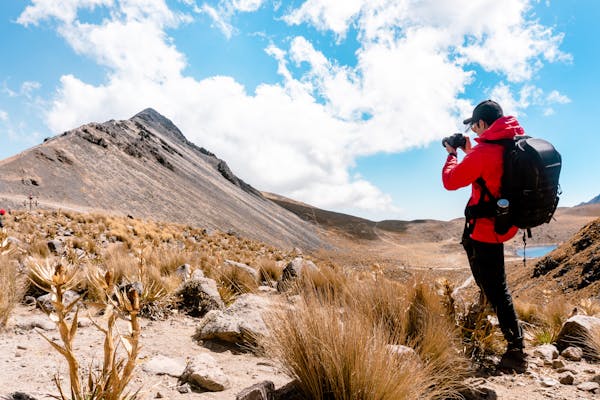In an era where technological advancements and sedentary lifestyles dominate, outdoor activities have become more important than ever. People spend an increasing amount of time indoors, often glued to screens, whether working on computers, watching television, or scrolling through smartphones. As a result, many miss out on the incredible physical, mental, and emotional benefits that come from spending time outside. This article delves deep into the benefits of outdoor activities that are essential for holistic well-being, exploring their numerous benefits and providing ideas on how to integrate them into modern life.

What Are Outdoor Activities?
Outdoor activities refer to any physical pursuits or leisure activities conducted outside in nature. These activities often involve interaction with natural environments like parks, forests, mountains, lakes, and oceans. What makes outdoor activities unique is that they stimulate the body and mind in ways that indoor activities often cannot. They engage the senses fully, allowing individuals to experience the sights, sounds, smells, and textures of the natural world.
Some common outdoor activities include:
- Walking: Perhaps the simplest form of outdoor activity, walking can be done almost anywhere, from city streets to scenic trails in national parks. It’s a great starting point for those looking to become more active.
- Hiking: Hiking offers a more adventurous form of walking, typically involving exploration of trails, hills, and mountains. This activity connects people directly with nature, providing both physical challenges and beautiful views.
- Cycling: Whether on roads, designated trails, or mountain paths, cycling is an excellent cardiovascular exercise that strengthens the legs and improves endurance.
- Camping: Camping allows individuals to spend extended periods in nature, whether for a night or an entire weekend. It’s a chance to disconnect from modern life and immerse oneself in a slower, more natural rhythm.
- Water-based activities: Swimming, kayaking, surfing, and paddleboarding are examples of activities that take place in lakes, rivers, and oceans. They combine the joys of water with physical exertion and relaxation.
- Team Sports: Soccer, basketball, tennis, and frisbee can be played in outdoor settings, combining social interaction with physical fitness.
These activities can be enjoyed individually, with friends, or in groups, offering versatility and inclusiveness, regardless of skill level or physical ability.
Physical Benefits of Outdoor Activities
1. Improved Physical Fitness
One of the most obvious benefits of outdoor activities is the improvement in physical fitness. Outdoor activities require various levels of physical exertion that engage the muscles, improve cardiovascular endurance, and enhance flexibility. Unlike gym workouts, which often involve repetitive motions and isolated muscle groups, outdoor activities typically involve functional movements that engage the entire body.
For example:
- Hiking challenges the legs, core, and even upper body when trekking with poles or carrying a backpack.
- Cycling strengthens the lower body while providing excellent aerobic exercise.
- Swimming is a full-body workout that improves lung capacity and endurance.
Outdoor activities often lead to increased calorie burn due to varying terrains, weather conditions, and unpredictability. For example, hiking on uneven ground requires more energy than walking on a treadmill because the body must constantly adjust to the terrain. The result is improved stamina, muscular strength, and cardiovascular health.
Furthermore, outdoor activities help in preventing chronic diseases. Studies have shown that regular physical activity can reduce the risk of developing heart disease, high blood pressure, Type 2 diabetes, and even certain cancers.
2. Boosted Immune Function
In today’s world, where exposure to pollutants, stress, and sedentary lifestyles can weaken the immune system, spending time outdoors can give it a much-needed boost. Natural environments provide fresh, clean air, which promotes respiratory health. Moreover, exposure to different ecosystems introduces the body to a wider variety of microorganisms, which may help in strengthening the immune response.
For example, forest environments are often filled with phytoncides, antimicrobial compounds emitted by trees. Studies suggest that exposure to these compounds can increase the activity of white blood cells, particularly natural killer (NK) cells, which play a key role in immune defense. This is one reason why the practice of “forest bathing” (Shinrin-yoku), spending mindful time in forested areas, has become popular in wellness communities.
3. Vitamin D Production
Outdoor activities allow for natural sunlight exposure, which is essential for the body to synthesize vitamin D. This vitamin is critical for maintaining bone health by aiding in the absorption of calcium and phosphorus. Vitamin D deficiency has been linked to a variety of health issues, including bone-related conditions such as osteoporosis and rickets, as well as autoimmune diseases and depression.
Many people, particularly those living in colder climates or with indoor jobs, suffer from vitamin D deficiency due to insufficient sunlight exposure. By incorporating outdoor activities into daily routines, even for just 10 to 30 minutes a few times a week, individuals can significantly boost their vitamin D levels, promoting bone strength and overall health.
Mental Health Benefits of Outdoor Activities
1. Stress Reduction
Outdoor activities are a natural antidote to stress. The constant demands of work, technology, and everyday life can leave individuals feeling overwhelmed and anxious. Nature offers a space to unplug, unwind, and find peace. Numerous studies have shown that spending time in nature reduces cortisol levels, the hormone responsible for stress.
Whether it’s the calming sound of waves on a beach, the rustle of leaves in a forest, or the chirping of birds in a park, nature provides sensory experiences that reduce the body’s stress response. These sounds can also have a meditative effect, helping individuals to clear their minds and focus on the present moment, which is a core principle of mindfulness practices.
2. Mood Enhancement
Outdoor activities have been consistently linked to improved mood and mental well-being. Physical activities release endorphins, which are chemicals in the brain that act as natural mood boosters. Being active in nature amplifies this effect. Studies have found that people who spend time outdoors regularly are less likely to suffer from depression and anxiety compared to those who stay indoors.
Seasonal Affective Disorder (SAD), a type of depression that occurs in the winter months due to reduced sunlight, can also be alleviated by spending more time outdoors. Even in cold weather, engaging in outdoor activities can help combat feelings of sadness, lethargy, and fatigue.
Additionally, the beauty of natural environments—whether it’s the colorful hues of a sunset or the majesty of a mountain range—can evoke feelings of awe, gratitude, and inspiration, further contributing to emotional well-being.
3. Enhanced Cognitive Function
Research has shown that spending time outdoors improves cognitive function, including attention, memory, and creativity. Activities in nature stimulate different areas of the brain than those used during typical daily tasks, such as working at a desk or commuting. Engaging in outdoor activities helps clear mental clutter, allowing individuals to think more clearly and creatively.
For children, outdoor play is crucial for cognitive development. Climbing trees, solving navigation challenges on a hike, or identifying wildlife encourages problem-solving and imaginative thinking. For adults, the benefits are equally important. Studies suggest that outdoor activities can help alleviate symptoms of attention disorders like ADHD and improve focus and task performance.
A notable study from the University of Michigan found that nature walks could significantly improve memory performance and attention span by up to 20%. This enhancement in cognitive abilities stems from the natural environment’s ability to reduce “mental fatigue,” allowing the brain to recharge and improve its functioning.
Emotional Benefits of Outdoor Activities
1. Connection with Nature
Outdoor activities provide a direct connection to the natural world. This connection—often referred to as biophilia, or the love of life and living systems—fosters emotional well-being. The opportunity to observe wildlife, explore landscapes, and immerse oneself in the beauty of nature evokes feelings of joy, peace, and awe.
For many, this connection to nature is restorative. The hustle and bustle of urban life, with its noise, crowds, and pollution, can be draining. In contrast, time spent outdoors offers an opportunity to disconnect from technology and reconnect with the simpler pleasures of life, whether it’s the smell of fresh pine in a forest or the sight of a bird in flight.
Many outdoor enthusiasts describe these experiences as spiritually uplifting, allowing them to find meaning, purpose, or a sense of belonging in the natural world. The outdoors can provide a space for reflection, mindfulness, and personal growth.
2. Social Interaction and Bonding
Outdoor activities often promote social interaction, whether through team sports, group hikes, or camping trips. Engaging in these activities with friends, family, or even strangers fosters a sense of camaraderie and community. Sharing experiences in nature—whether it’s conquering a challenging hiking trail or sitting around a campfire—builds strong emotional bonds.
Participating in outdoor activities together encourages cooperation, trust, and communication, especially in situations where individuals must rely on each other for support or guidance. This makes outdoor activities an excellent way to strengthen existing relationships and form new ones.
For those seeking social connections, joining outdoor clubs, such as hiking groups, bird-watching societies, or cycling teams, can provide opportunities to meet new people and engage in shared interests.
Environmental Awareness and Stewardship
1. Awareness of Environmental Issues
Outdoor activities not only promote personal health but also foster a greater understanding of environmental conservation. When individuals spend time in natural environments, they become more aware of ecological issues such as pollution, deforestation, and climate change. Witnessing the beauty and fragility of nature firsthand can inspire a desire to protect the environment.
For example, hikers who frequently visit national parks may notice trail erosion caused by overuse, or beachgoers might encounter plastic waste littering the shore. These experiences often spur individuals to participate in environmental advocacy efforts, such as park cleanups, wildlife conservation programs, or movements advocating for sustainable policies.
2. Developing a Sense of Responsibility
Engaging in outdoor activities teaches individuals about the importance of preserving natural spaces for future generations. Many outdoor enthusiasts adopt the Leave No Trace principles, which encourage responsible behavior in nature by minimizing human impact on the environment. These principles include practices such as:
- Pack it in, pack it out: Taking all trash and belongings out of nature to prevent littering.
- Respect wildlife: Observing animals from a distance and not feeding them.
- Stay on designated trails: Avoiding the creation of new trails that can damage fragile ecosystems.
By practicing these habits, outdoor enthusiasts contribute to the sustainability of the environment while cultivating a deeper sense of environmental stewardship.
Outdoor Activities for Different Life Stages
1. Children and Adolescents
Children today are growing up in an era dominated by screens, which limits their opportunities for outdoor play. Yet outdoor activities are vital for their physical development (enhancing coordination, balance, and strength), as well as their mental growth (fostering creativity and problem-solving). Activities like climbing, running, and exploring encourage risk-taking and resilience, helping children develop confidence and independence.
Outdoor play also encourages social skills, as children learn to cooperate, share, and negotiate while engaging in group activities like sports or games. Schools and parents can promote these benefits by encouraging outdoor playtime, family hikes, or involvement in nature-focused clubs like the Scouts.
2. Adults
For adults, outdoor activities offer a much-needed break from the routine of work, family responsibilities, and urban life. They provide opportunities for stress relief, socializing, and maintaining physical fitness. Furthermore, for many adults, outdoor activities offer an opportunity to reconnect with a simpler, more grounded way of living that stands in stark contrast to the fast-paced modern world.
Adults who work long hours indoors can benefit greatly from a few minutes spent outside during lunch breaks, evening walks, or weekend excursions to nearby parks or nature reserves. Taking time to unplug from the digital world and immerse oneself in nature leads to a refreshed mind, better focus, and overall improved well-being.
3. Seniors
Outdoor activities offer numerous benefits for seniors, who often face challenges related to mobility, social isolation, and cognitive decline. Simple outdoor activities like walking, tai chi, or gardening can provide physical exercise while also offering opportunities for social engagement. Walking in nature, in particular, is beneficial for improving balance, reducing the risk of falls, and maintaining mobility as individuals age.
Moreover, exposure to sunlight helps seniors maintain adequate vitamin D levels, reducing the risk of osteoporosis and improving overall bone health. Outdoor activities can also help stave off feelings of loneliness and depression that may arise as individuals grow older and become less socially active.
How to Incorporate Outdoor Activities into Your Life
Incorporating outdoor activities into daily life doesn’t have to be difficult or time-consuming. Here are a few practical ideas for making outdoor time a regular part of your routine:
- Take advantage of local parks: Many urban and suburban areas have parks, nature reserves, or community green spaces that are perfect for walking, jogging, or relaxing outdoors. Start with a simple goal like a 20-minute walk a few times a week.
- Plan weekend excursions: Make a habit of planning outdoor activities on the weekends, such as hiking, biking, or visiting a beach. If you’re new to outdoor activities, try exploring new locations each time to keep things exciting.
- Use outdoor activities as social events: Instead of meeting friends for coffee or dinner, suggest outdoor activities like a picnic, a group hike, or a game of soccer or frisbee in the park.
- Join outdoor clubs: Many cities and towns have outdoor clubs, hiking groups, cycling teams, or other organizations dedicated to outdoor recreation. Joining a club can introduce you to like-minded individuals and help you stay motivated.
- Set challenges or goals: Whether it’s signing up for a 5k, planning a multi-day backpacking trip, or mastering a new outdoor skill like rock climbing or paddleboarding, having a goal to work toward can make outdoor activities more rewarding and purposeful.
Outdoor activities offer a wealth of benefits, enhancing not only physical fitness but also mental clarity, emotional balance, and environmental consciousness. They provide a reprieve from the modern lifestyle’s stresses, allowing individuals to reconnect with nature, nurture their bodies, and rejuvenate their minds.
From reducing stress and improving mood to fostering a sense of environmental stewardship, outdoor activities hold the potential to transform the quality of life for people of all ages. By incorporating even small amounts of outdoor time into daily routines, individuals can reap the wide-ranging benefits of nature and pave the way for a healthier, more balanced life.





